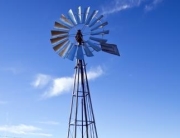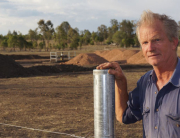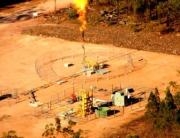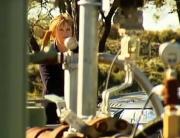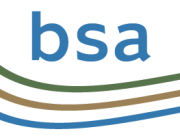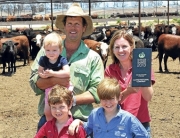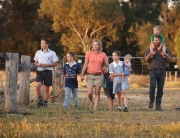Resource developments on our land
June 2013
Richard Golden finished school at grade 10 and worked on properties and at home. He started a purchase arrangement on Potter’s Flat in 1984. Married Helen in 1987 and they have four kids from 15-22. Richard has deep cultural and emotional ties to the land and to ours in particular as he is the 4th generation to hold it. Richard is committed to leaving the land as good as or better than when he took over. Richard has a history of agri-political representation with Cattlemen’s Union and then AgForce. He gained post-graduate entry to UQ in Rangelands Maganement in 2006 through Recognition of Prior Learning, and with the help of a CSIRO scholarship he graduated with Graduate Diploma of Rangeland Managemnt in 2009. Richard has three gas tenements and an underground coal tenement over Potter’s Flat, and will be within 8km of the edge of the Xstrata hole in the future.
We are one of the lucky families with our youngest having gone to boarding school before the wash-up from the developments has fully hit Wandoan. I have had varying experiences with the three gas companies and with the coal miner, and hope my experiences and insights may help others to better deal with the same.
Richard’s presentation from the PRA conference in 2013:
Resource developments on our land-
Activities Number of agreements
- 3 gas tenements, on each of two landholdings 6
- 1 longwall EPC (Exploration Permit for Coal) on each of two landholdings 2
- 1 x 275,000 volt lattice tower power transmission line on one of the holdings 1
So, by the time we are finished, we will have had to negotiate 9 agreements with four different companies about 3 different activities!
Perhaps should get my potentially contentious opinions out in the open first up-
- Australia is a free enterprise country, and if our forebears came and imposed a higher and better use on the previous occupiers, then I think it is a bit hypocritical for us to say that a legitimate activity such as resource development shouldn’t be able to operate in our space.
- I support the freedom of landowners to choose to sell to resource companies and the freedom of gas companies to buy landholdings in a voluntary sale.
The issue for me in both instances is the manner and the process. The mental and emotional strain on landholders, our families and our communities which lets us find out from experience how much better the internet works from about 2.30am to daylight.
- Sol the shopkeeper with his son Ikey’s first lesson in business.
- Global gas corporations are ruthless businesses, not charitable institutions. They operate in Queensland with laws which already favour their interests, even without the disparity in skill, experience and financial capacity. Like the dingo waiting patiently in the shade beside the waterhole, knowing that the roo he chased in there must eventually come out, companies which choose to do so are in a position to wait patiently while landholders financially drown in legal and expert costs, or volunteer to come out to be slaughtered.
- Having said that, it is important to also say, gas companies are not all the same as each other. Nor is any gas company all good, nor any all bad. Like gems, there are many facets to a gas company. But in the end, it is the company culture that rules.
- Be cautious about either accepting or rejecting the landholders who play front-men for gas companies in media blitzes. We don’t know, and they aren’t allowed to say, what tipped the scales for them. Noone knows what those landholders’ vision or life objectives were or are, and nobody can know what their compensation agreements entailed. And nobody can judge whether the one gas company they are promoting represents the industry standard.
- Two of the most abused words in the resources and political language are “certainty” and “information”. With great respect to MPs and Gasfield commissioners the last thing I need is “more” information without first getting the specific information I have already requested and which has been withheld for the last 6 months. So the riders to the word “information” are the words “accurate” and “relevant”. Without both of those adjectives, more information is worse than useless. Some gas companies are prepared to drown landholders in useless and possibly inaccurate information and use that to obscure the fact. And “certainty”, well the only certainty the “good faith” negotiation process has provided to us is that companies are in a position to use the laws to choke us into submission while smiling and talking about the good faith, and that one is in the process of doing so. That type of certainty is 100% negative.
- Remember that even though the time-honoured caution caveat emptor is effectively dead for the general public, it remains essential for us as businesses fighting for our very right to remain in stewardship of our landscapes and in control of at least a part of our destiny. SO….don’t even draw breath without legal representation and advice and don’t take anything or anyone at face value.
- And so to the subject of professional costs which the law appears to say must be paid by the company – at least one company feels free to choose not to pay landholders’ professional costs using the rubbery adjectives “reasonable and necessary” to justify the refusal. Now, notwithstanding the apparent ability to pay only what the company chooses to pay, we have SKM, a consultancy with direct connections to the gas industry as a supplier of professional services, providing “independent” advice to government suggesting capping the costs which at least one company already feels free to refuse to pay anyway. If this “capping” proposal were accepted by government the effect will be to further suffocate the landholders who have small areas and for whom the most generous of financial settlements can never cover the shortfall between SKM’s ridiculous cap recommendation and the real cost of dealing with a gas company which, for example, flatly refuses to supply the information needed by a landholder to inform their compensation discussions.
- The “mudguard” syndrome.
The shiny side-
Internationally renowned, world’s best practice gasfield operator and gas producer, with warmth, integrity and generosity, building a minimal impact gasfield in a welcoming receiving environment, where there is little if any real conflict between the gasfield and the existing land use. Deeply committed to strong and respectful relationships with landholders, and good-faith negotiations to obtain mutually beneficial agreements. Determined to achieve real co-existence.
This is the sort of soft sell that gets some local, state and federal politicians wetting themselves with excitement and pleasure at the win-win for everyone. The sort of stuff that wins awards for advertising companies while helping the voting public to rest easy at night.
And then the smelly, dirty underside of the gas company mudguard-
Building and operating a gasfield in our business premises and our homes, for an uncertain number of decades into the future.
Breaches such as trespass, weed certificates for the wrong vehicle, no certificate at all, certs out of date, certified vehicles contaminated with vegetative matter and soil, unauthorised entry, letting cattle out, letting cattle in, letting cattle between paddocks, cutting stock water supplies, cattle falling into bell-holes, mixing of soil horizons in gathering construction, building a gathering system in a property where they have not even got a CCA, and then when they are sprung in the act, leaving plastic tape fluttering on pegs in that paddock where stud bulls live so the bulls can eat it and die, creating the environment for undesirable grasses to dominate landscapes, and on and on and on.
And let’s not even start on the water matter.
So that is barely a taste of what living and working in someone else’s gasfield is like, and however affronted you feel, multiply that by 10 to start to gain the real picture. Even if your or your neighbour’s experience has been positive, there is nothing to show that anyone else’s will be. In conclusion-
- Remember Ikey and never trust anybody
- Remember that in the end the company culture rules
- Don’t even shake hands without legal advice and representation, and count your fingers after
- Scream about the suggestion to introduce any form of capping on recoverable professional costs
- Report every breach however small
- Concede nothing without a fight
- Remember the mudguard syndrome
- And mourn the loss of trust, and privacy, and the families and homes we have struggled to make and protect

